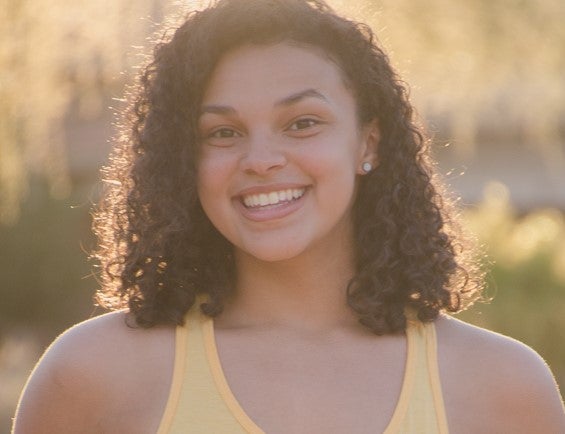ASU college reaches out to students to hear their pandemic-related concerns

Mauricio Macias made phone calls to fellow students for the Watts Care Calling Campaign in spring 2020.
Hundreds of Watts College of Public Service and Community Solutions students at Arizona State University recently discovered some unfamiliar numbers appearing on the screens of their ringing phones. But the callers weren’t strangers.
They were volunteer Watts students reaching out on the college’s behalf through the Watts Care Calling Campaign, calling to find out how their fellow students were faring amid challenges wrought by the COVID-19 pandemic.
Starting in mid-April, 10 volunteers were assigned to telephone as many Watts College students as possible. The goal was simple, but important: to let every Watts student know that their college cared about how they were holding up and if they needed help connecting to available resources. So far, more than half of the approximately 7,000 Watts College undergraduate and graduate students have been contacted. Additional resources have been added to ensure everyone is reached before the end of the semester.
Much happened at ASU in recent weeks that would explain asking. As the COVID-19 pandemic expanded in Arizona, the university successfully pivoted to bring all the spring semester’s on-the-ground classes online.
That gave most students on campus the opportunity to find places to stay where social distancing could be more easily practiced. But it also spread the Watts student body far and wide, meaning friends might no longer be close by to share the ups and downs of new routines, and ASU services usually found around the corner were suddenly more physically distant.
Students Alexia King and Mauricio Macias were part of the campaign’s team of volunteer callers.
Alexia King called fellow Watts College students for the Watts Cares Calling Campaign in spring 2020.
Each was given a list containing students’ contact information and their school affiliation, and a few tips on what to say.
Most students maintained they were doing all right, Macias said.
King said she was surprised to learn that in some instances, concern was expressed in the opposite direction.
“Sometimes they asked me how I was doing rather than sharing how they were doing,” King said. “One volunteered to help make these phone calls, as well.”
Among the most talked about topics were getting and fulfilling requirements for internships while Arizonans have been strongly urged to stay home and not go to work or school. Others had academic advisement inquiries. King said that when students’ concerns became too detailed for her to answer, she would refer them to resources and offices in the college for further assistance.
Macias said he learned things about fellow students he didn’t know before, such as how many had more than one major or minor, or were taking classes on more than one ASU campus.
Watts College event program coordinator Breanna Carpenter facilitated the outreach effort. She said the calls were important for both the callers and the recipients.
“So far, I think it has been amazing,” Carpenter said. “The students have really appreciated the check-in calls and it has created a meaningful experience for the volunteers. I also think that the personal phone call has been a great way for all of our students to feel connected.
The college has previously telephoned large numbers of students during major crises. When Hurricane Harvey struck the Houston metropolitan area in August 2017, the college contacted Watts students in the region, Carpenter said.
More Arts, humanities and education

Grand Canyon National Park superintendent visits ASU, shares about efforts to welcome Indigenous voices back into the park
There are 11 tribes who have historic connections to the land and resources in the Grand Canyon National Park. Sadly, when the…
ASU film professor part of 'Cyberpunk' exhibit at Academy Museum in LA
Arizona State University filmmaker Alex Rivera sees cyberpunk as a perfect vehicle to represent the Latino experience.Cyberpunk…

Honoring innovative practices, impact in the field of American Indian studies
American Indian Studies at Arizona State University will host a panel event to celebrate the release of “From the Skin,” a…
